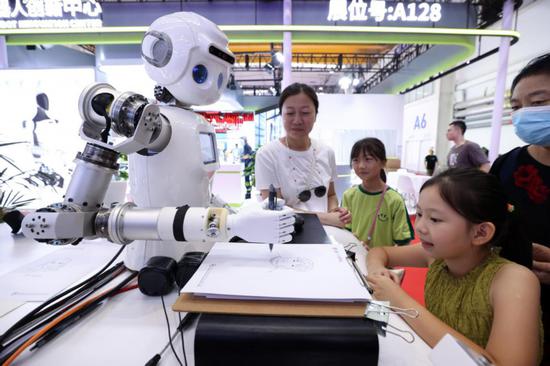
A robot draws a picture at the ongoing 2024 World Robot Conference in Beijing. (CHEN XIAOGEN/FOR CHINA DAILY)
Humanoid robots are expected to usher in a new stage of growth as Chinese tech companies venture into the field to cash in on the immense market opportunities going forward, said experts and business executives.
Their comments have come as humanoids took center stage at the ongoing 2024 World Robot Conference, which runs till Sunday in Beijing.
According to a report released at the conference by the World Robot Cooperation Organization, humanoid robots will profoundly transform human production and lifestyle, while leading society into a new stage of intelligent development and bringing disruptive changes to various industries.
In the industrial sector, humanoid robots will participate widely in hazardous production processes, significantly enhancing production efficiency and safety. They will become a crucial force in executing tasks such as scientific exploration, disaster relief and security inspections in extreme environments, as per the report.
Qiao Hong, president of WRCO, said multimodal large language models, which possess the ability to generate text, images, audio and video based on given prompts, will provide humanoid robots with enhanced understanding, perception and decision-making capabilities.
Chinese robotics firms are at the forefront of advancements in the development of humanoid robots, achieving significant breakthroughs in both lower and upper limb functionalities, and bolstering the application of cutting-edge robotics technology in the manufacturing sector, industry insiders said.
At the conference, UBTech Robotics, a Shenzhen, Guangdong province-based robot developer, is showcasing its industrial humanoid robot, Walker S, which has been applied in car factories to carry out tasks such as intelligent sorting, intelligent quality inspection, and installation of car components.
UBTech said in July that it would work with FAW-Volkswagen, one of China's earliest joint venture automakers, to develop highly intelligent and flexible production lines, as well as an unmanned car factory.
The collaboration aims to integrate humanoid robots into industrial operations at FAWVolkswagen's factory in Qingdao, Shandong province, where the robots will undertake tasks such as bolt tightening, component assembly and handling automotive parts.
Tan Min, chief brand officer of UBTech, said the emergence of humanoid robots will change the way people live and work, and improve production efficiency and people's quality of life.
These robots, he added, will not only play a vital role in intelligent manufacturing, but could also be used in fields such as personal services, healthcare and education.
China aims to build an innovation system for humanoid robots by 2025, with breakthroughs to be made in several key technologies to ensure the safe and effective supply of core components, according to a guideline unveiled by the Ministry of Industry and Information Technology. By 2027, the country will establish a secure and reliable industrial and supply chain system of humanoid robots, the guideline said.
An industry report co-compiled by UBTech and other partners has forecast that the market size of humanoid robots in China will reach some 2.76 billion yuan ($386.7 million) this year and is expected to touch 75 billion yuan by 2029, accounting for 32.7 percent of the global total.
Marina Bill, president of the International Federation of Robotics, said about 60,000 industrial robots were installed in China 10 years ago, and it has gone up to 290,000 now. "Hardly any other country in the world has had that quick a development."
Bill, who is also the global head of marketing and sales and head of product line software and digital in industrial conglomerate ABB's robotics division, said China is a very important country for robotics, and the company has continuously expanded its footprint here.
"Just a couple of years ago, we opened our mega factory in Shanghai where we now have a huge production of robots," Bill said, adding that the company does research and development for global products in China and will work with local suppliers in various areas.










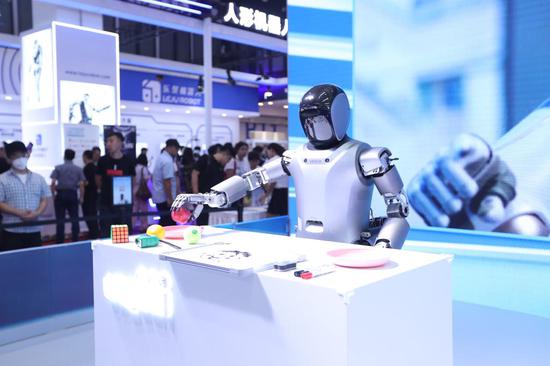


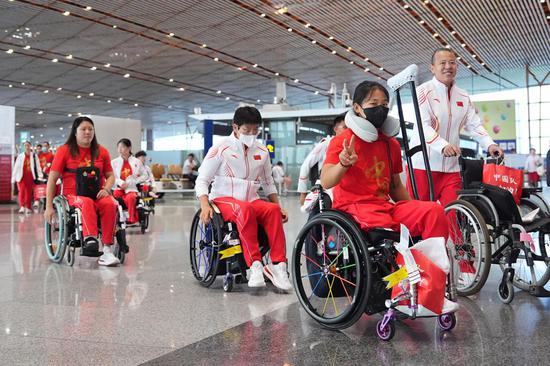
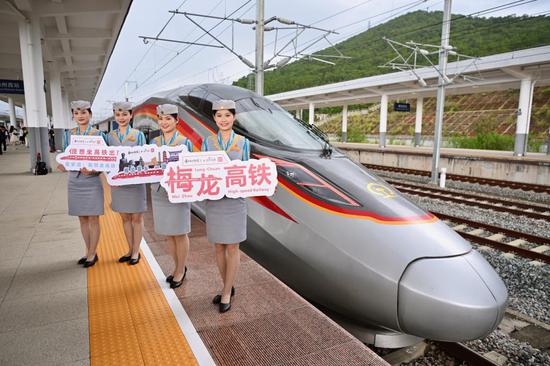






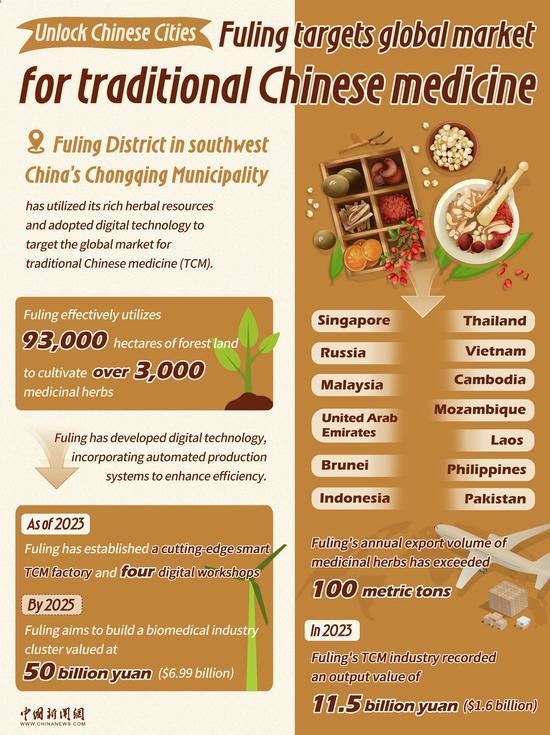
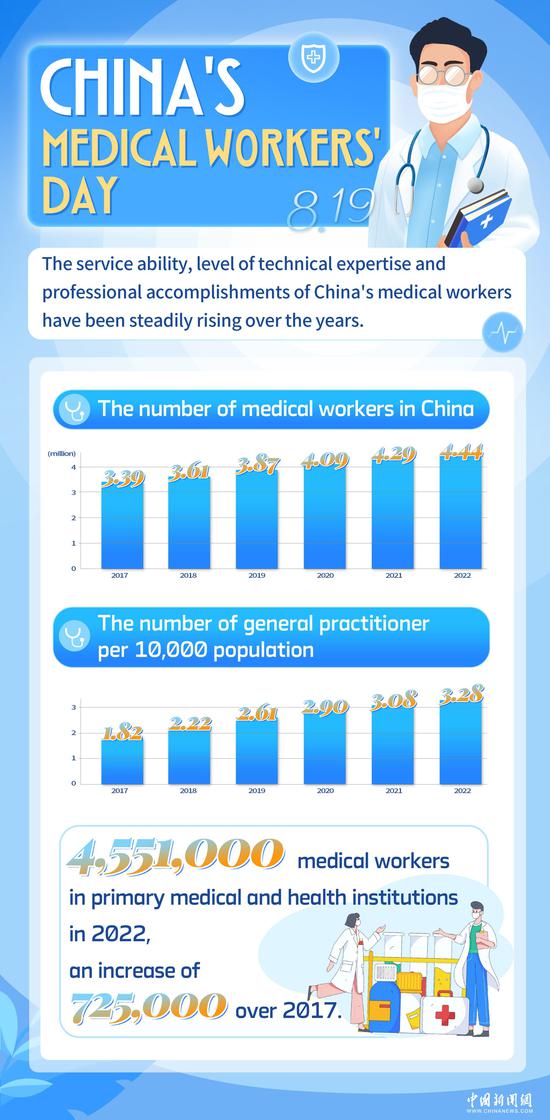



























 京公网安备 11010202009201号
京公网安备 11010202009201号